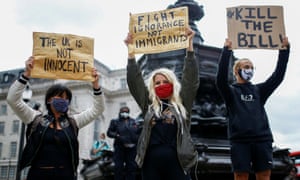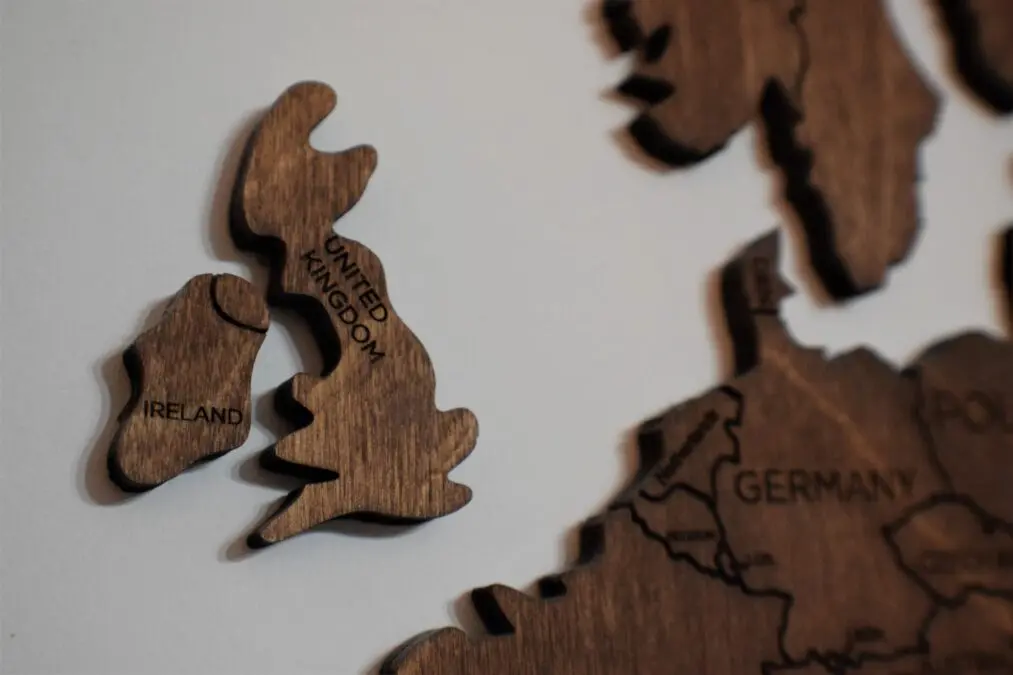It seems as if the end is in sight. Four and a half years after voters chose it in a referendum, the process of taking Britain out of the European Union is drawing to a close.
The final act may yet be calm or chaotic, but in any event, at least politics will no longer be dominated by an ill-tempered argument between the tribes of Leave and Remain. We can move on from the minutiae of fish quotas and customs declarations and get back to the bread-and-butter issues that really matter.
Yet, while the formal Brexit process may end, Brexitland is here to stay.
Brexit has mobilized deep divisions over identity and values that have been building in the electorate for many decades and these are not going away. The debate over EU membership has been so protracted and painful because it is about far more than Britain’s relations with its European partners.
Britain has been reshaped by mass immigration, rising ethnic diversity, and an expansion of higher education. The EU referendum activated the new divides opened up by these changes, creating political identities – Remain and Leave – and banners for voters with different world views and priorities to rally behind. These Leaver and Remainer identities are now more widely shared, and intensely felt, than any other form of political attachment. The political fight is different because everyone knows whose side they are on and whom they oppose.

We can see the conflict between the Brexit tribes creeping into the issue after issue, even as Brexit itself falls down the political agenda. Leave and Remain tribes divide in their views of institutions, politicians, and issues from higher education to environmentalism. The Brexit tribes divide even in their views of how to respond to the Covid-19 crisis.
The divides recur because what Leave and Remain capture and symbolize are fundamental differences in voters’ outlooks and priorities. Leave has become the identity of choice for voters more attached to traditional social identities and more anxious about rapid social change. Remain has become the badge of voters who embrace the growing openness and mobility of recent decades and are keen to accelerate it.
These differences in outlook are differences in degree, not kind. All groups in British society have shifted in a liberal, inclusive direction. The socially conservative pensioner of 2020 is far more likely to be at ease with diversity or gay marriage than their parents or grandparents were. Large numbers of people just a generation ago were openly prejudiced against other races and quite happy to say so. Condemnation of racism today is near-universal.
Yet while everyone is shifting in the same direction, they are doing so at different rates. Most Leave voters condemn prejudice and discrimination as social ills, but they have a narrower understanding of what racism means and what are the best solutions to fight it. Most Remain voters are not woke puritans seeking to shut down legitimate opponents, but people strongly motivated by the cause of anti-racism, who can find it hard to understand others who do not share their expansive interpretation of this cause.
This is the heart of the Brexitland conflict: a rapidly changing society throws up identity conflicts that require sensitivity and respect for shades of grey to work through, but the polarising politics of “us against them” that Brexit has catalysed works against this.
Partisans see the best in their own group and the worst in their rivals. It is all too tempting for a socially liberal Remainer to reach for stereotypes of ignorance and prejudice to dismiss a Leave voter. It is all too easy for a Brexiter to read a Remainer’s anti-racist passion as the fashionable hypocrisy of the privileged. Partisan stereotypes are chronically available to all of us. They are part of how we make sense of a complex world. But they also have a strong polarising effect. It is easier to shout down our opponents than see things from their point of view.
Politics all too often makes this worse. Tribal attacks and partisan stereotypes are temptations that political leaders and activists indulge eagerly when in a tight spot. Stoking outrage at the evils of the other tribe is an effective way to motivate supporters and distract attention from your own failings. We see no shortage of this behaviour every time a new identity conflict emerges. Demonising political opponents may deliver a short-term advantage, but in the long run it polarises politics further by keeping partisan stereotypes at the forefront of voters’ minds.

While identity conflicts look set to continue, they will be fought out on very different terrain once the issue of Brexit itself finally fades. While predicting the direction of politics is a fool’s errand – few had heard of Covid-19 a year ago – a couple of issues loom large as potential flashpoints.
The first is Scotland. A new Scottish Parliament will be elected next May and the SNP will treat a strong performance as a mandate to begin the campaign for a new independence referendum. The SNP has made great gains by mobilizing Scottish resentments against England and Westminster. It is quite possible that Boris Johnson’s Conservatives will look to return the favor, mobilizing English nationalist sentiment against Sturgeon’s supporters. The risk, as with Brexit, is that once such resentments are mobilized they become hard to control.
However, the next moment of mobilization of identity conflicts does not have to come from the side of the nationalist or traditionalist right. Although the years in the run-up to the referendum were dominated by the mobilization of voters threatened by diversity and immigration, the next wave of identity conflicts could be sparked by liberals organizing to accelerate change.
The Black Lives Matter protests that gripped British cities in the spring could be a sign of things to come, as liberal voters press politicians to embrace and support changes they see as desirable. The past decade of Ukip, Donald Trump, and Brexit has belonged to politicians who mobilized those most threatened by the changes reshaping our societies. The next decade may yet belong to those who give voice to the voters who embrace change.







